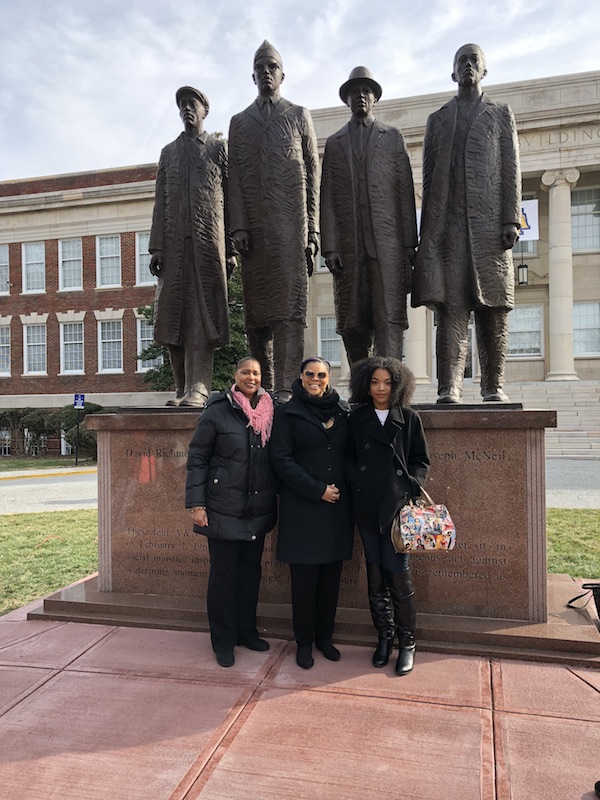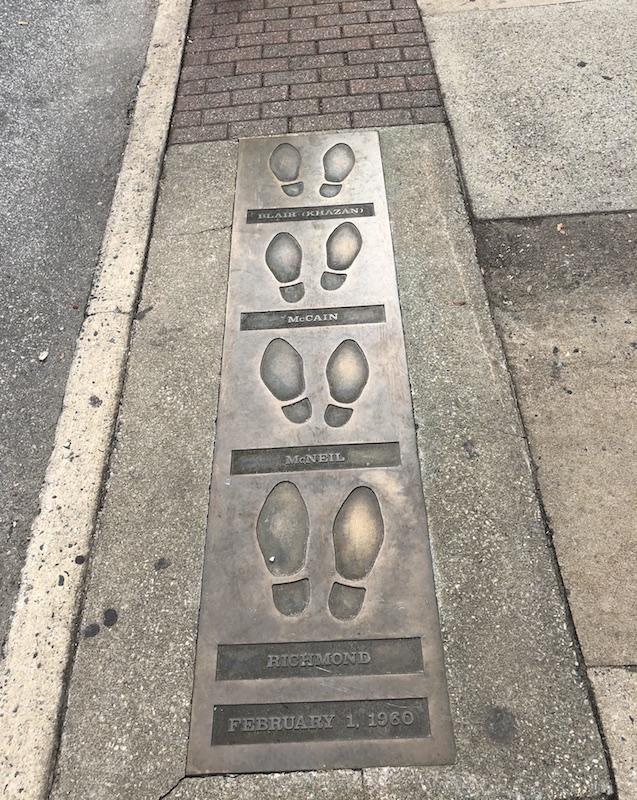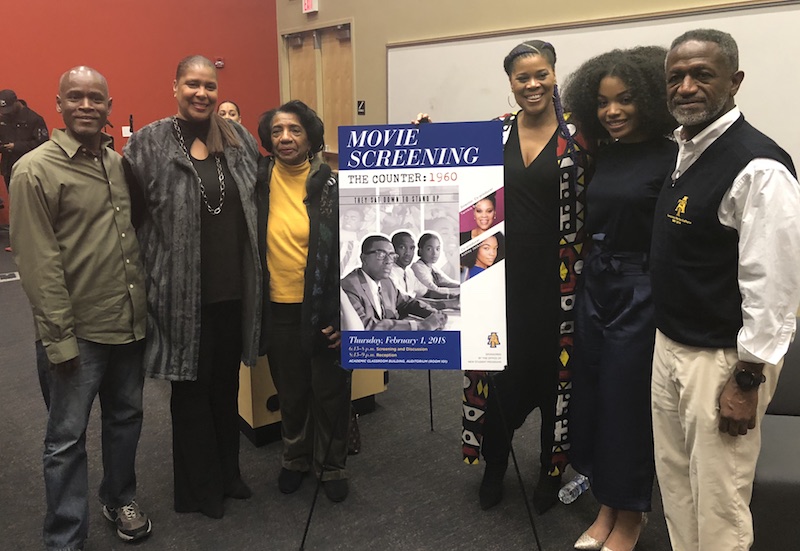“February One” marked the 58th Anniversary of the Greensboro Four sit-in, and the producers, director, and editor of the award-winning short film, The Counter: 1960 were invited to North Carolina A&T to participate in a commemorative celebration.
The day culminated with a screening of the film, The Counter: 1960, produced by New York Film Academy’s Chair of the Industry Lab and Producing Instructor Kimberly Ogletree, edited by NYFA’s Leander Sales; directed by Tracy “Twinkie” Byrd, and co-produced and starring Ashley Jackson, daughter of Reverend Jessie Jackson, to commemorate the protest in 1960. The story chronicles three WOKE students who are frustrated by police killings of unarmed black youth and wanting to contribute to positive change, the students experience time travel, finding themselves seated at a lunch counter in 1960 which sparked more civil rights sit-ins across the nation. This is the first award-winning short produced through the NYFA Industry Lab.

In 1960, Jim Crow was the law and segregation was enforced. The flourishing five & dime store Woolworth’s sold inexpensive merchandise to the working middle class but African Americans were only allowed to shop there. Four apoplectic college students from North Carolina A&T decided that, when it came to segregation, enough was enough.
Committed to making a change, they walked up town and sat down at the F.W. Woolworth “whites only” lunch counter and politely asked to be served. When they were refused, these brave young men remained in their seats. This event immediately sparked national attention. The action of four courageous young men added fuel to an already burning fire, with hope that this injustice would right a wrong through a nonviolent Civil Rights protest — which was only one of many that were spreading across the rural south.
Hundreds of students, churches, civil rights organizations and members of the community joined the six-month-long protest. And on July 25th, 1960 the Woolworth department store chain ended its policy of racial segregation in its stores across the southern United States.
New York Film Academy digital editing instructor, Leander Sales, remembers the racial tension in North Carolina: “I grew up in this and that’s what keeps me strong and focused.”
The anniversary celebration at North Carolina A&T began with the laying of a wreath beneath the bronze statue of the Greensboro Four: Joseph McNeil, Franklin McCain (Deceased), David Richmond (Deceased) and Ezell Blair. The event was well attended by the news media, students, young children from nearby elementary schools, and community residents, all present to honor the men.
The day continued with a packed campus auditorium celebrating the civil rights movement with a panel of A&T students discussing the state of African Americans in 2018.

After the assembly, a march from North Carolina A&T to the F.W. Woolworth museum was organized.
As Kimberly Ogletree commented, “This is a monumental moment in my life. As I walk the same path as the Greenboro Four walked I can feel the anxiety they must have felt, because ultimately those young men had no idea if they would leave unscathed and alive because police brutality was an everyday occurrence in the rural south.”
Once the march arrived at the Woolworth’s, the group was taken on a tour of the museum, where they were able to see the original counter where the sit-in took place in 1960. The celebration continued as The Counter: 1960 filmmakers shared their “February One” experiences and pitched their film on the campus radio station WNAA 90.1 FM, followed by the screening of the film.

Every seat was filled in the theater and the film was very well received. The panel discussion was educational and informative. As these men were remembered, the celebration paid homage to their sacrifice to stand, sit, kneel and march on. They will forever be remembered in history as the Greensboro Four.
The New York Film Academy’s Industry Lab in Los Angeles, California provided production services for the short film, which is currently receiving film festival accolades worldwide.